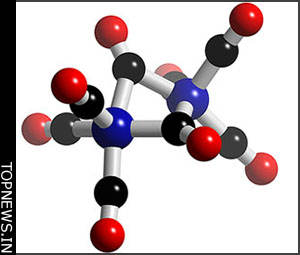New method converts CO2 into methanol under very mild conditions
 Berlin, April 21: Scientists have developed a novel reaction scheme by which CO2 can be efficiently converted into methanol under very mild conditions.
Berlin, April 21: Scientists have developed a novel reaction scheme by which CO2 can be efficiently converted into methanol under very mild conditions.
The technique was developed by researchers working with Yugen Zhang and Jackie Y. Ying at the Institute of Bioengineering and Nanotechnology in Singapore.
As reported in the journal Angewandte Chemie, the scheme is based on an N-heterocyclic carbene catalyst and a silane as the reducing agent.
The basic framework of an N-heterocyclic carbene is a five-membered ring made of two nitrogen and three carbon atoms.
Instead of having the usual four bonds, one of these carbon atoms only has two.
The two electrons left over in the form of a lone pair, which makes this species highly reactive to attack CO2.
The researchers in Singapore produced the carbene catalyst used in the reaction in situ from a precursor.
The carbene activates the CO2, but is then split off again to end the reaction cycle in its original state.
The formal reaction partner is a hydrosilane, an organosilicon compound that acts as a reducing agent.
The reaction product into which the CO2 is converted can easily be collected in the form of methanol in the last step of the reaction series. (ANI)